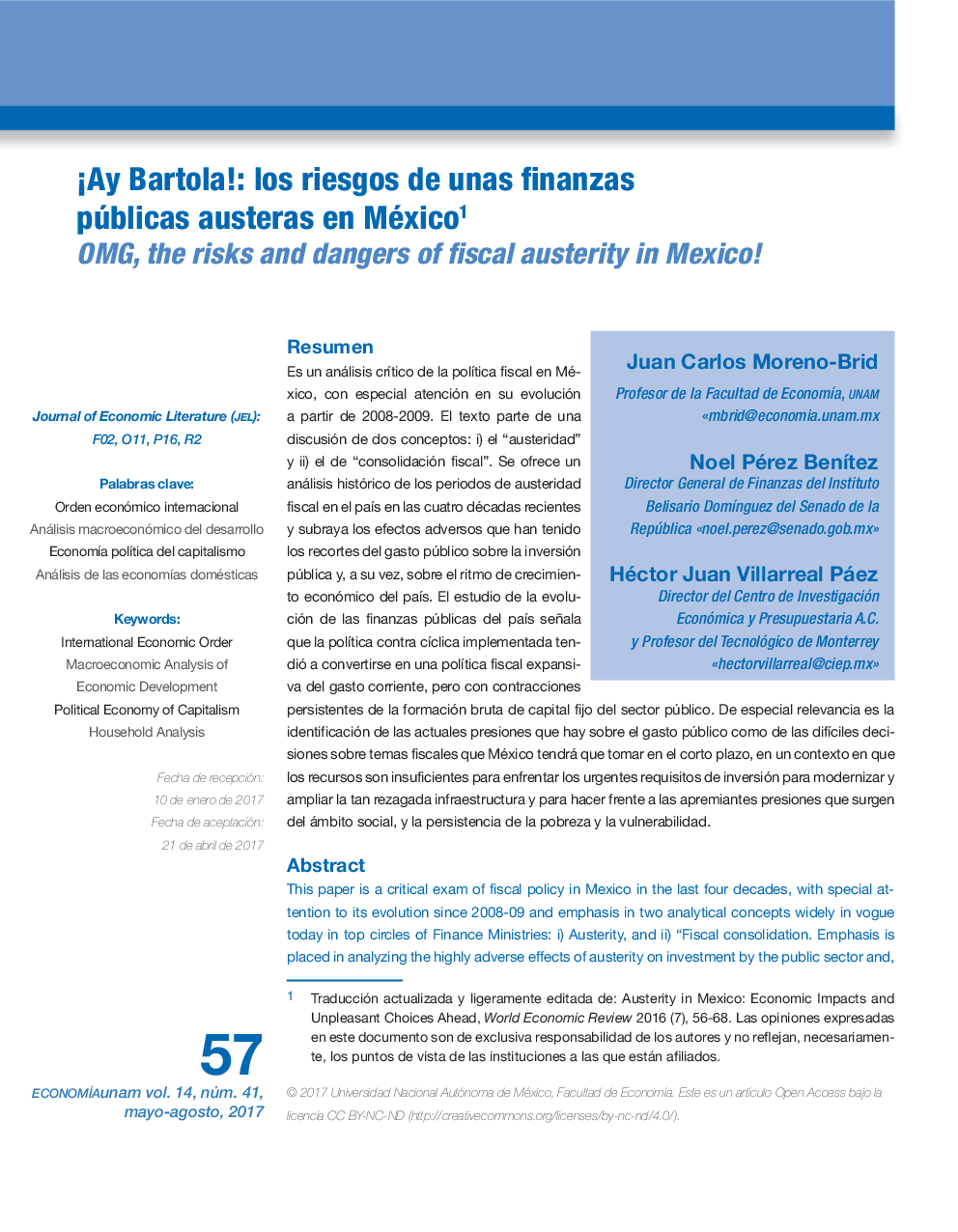| Article ID | Journal | Published Year | Pages | File Type |
|---|---|---|---|---|
| 7345814 | Economía UNAM | 2017 | 18 Pages |
Abstract
This paper is a critical exam of fiscal policy in Mexico in the last four decades, with special attention to its evolution since 2008-09 and emphasis in two analytical concepts widely in vogue today in top circles of Finance Ministries: i) Austerity, and ii) “Fiscal consolidation. Emphasis is placed in analyzing the highly adverse effects of austerity on investment by the public sector and, subsequently, on the Mexican economy's growth potential. The next section sets to identify the current pressures and long-standing challenges of fiscal policies in Mexico. This analysis reveals the policy options that Mexico faces in the short term. It argues that, unless either a deep fiscal reform is implemented or foreign debt soars, the Mexican economy will neither be able to meet key social needs of its population nor to strengthen and modernize the infrastructure.
Keywords
Related Topics
Social Sciences and Humanities
Economics, Econometrics and Finance
Economics and Econometrics
Authors
Juan Carlos Moreno-Brid, Noel Pérez BenÃtez, Héctor Juan Villarreal Páez,
